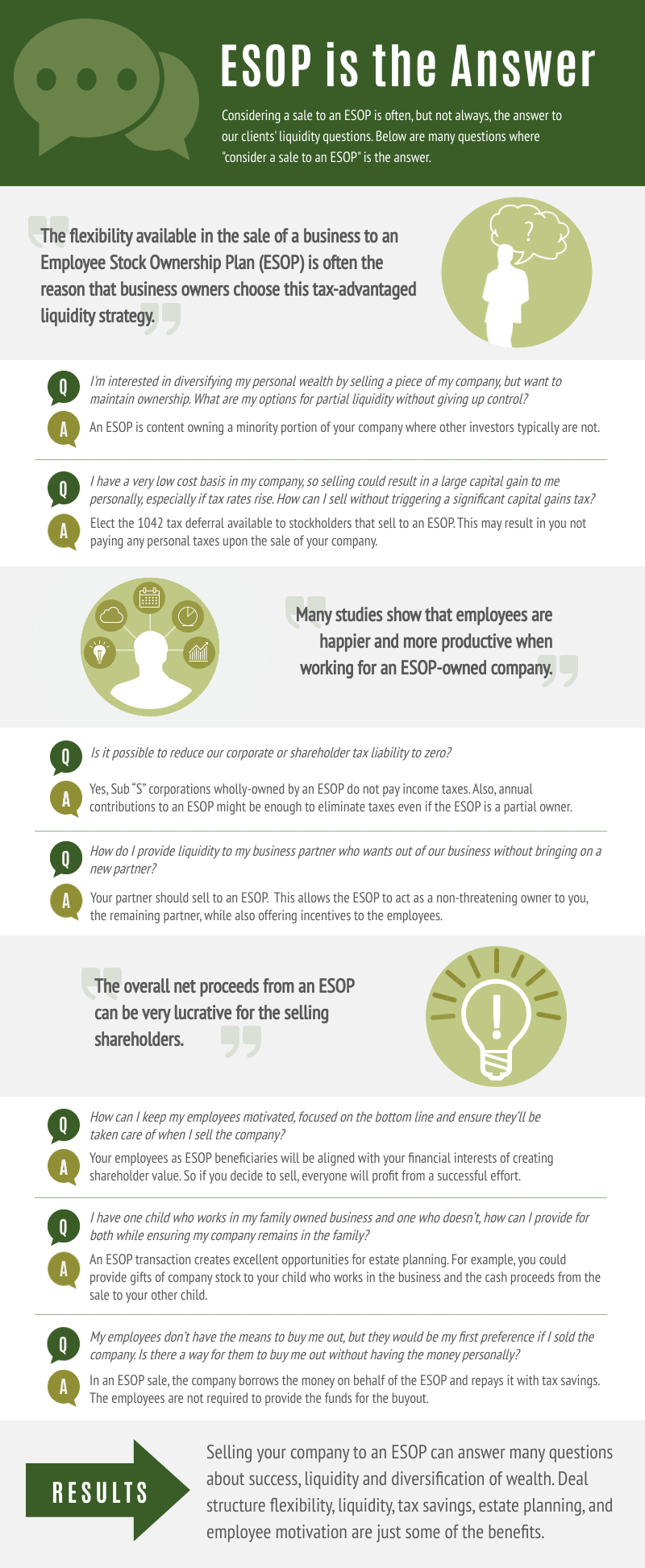
Considering a sale to an ESOP is often, but not always, the answer to our clients' liquidity questions. Below are many questions where 'consider a sale to an ESOP' is the answer.
The flexibility available in the sale of a business to an Employee Stock Ownership Plan (ESOP) is often the reason that business owners choose this tax-advantaged liquidity strategy.
Q: I'm interested in diversifying my personal wealth by selling a piece of my company, but want to maintain ownership. What are my options for partial liquidity without giving up control?
A: An ESOP is content owning a minority portion of your company where other investors typically are not.
Q: I have a very low cost basis in my company, so selling could result in a large capital gain to me personally, especially if tax rates rise. How can I sell without triggering a significant capital gains tax?
A: Elect the 1042 tax deferral available to stockholders that sell to an ESOP. This may result in you not paying any personal taxes upon the sale of your company.
Q: Is it possible to reduce our corporate or shareholder tax liability to zero?
A: Yes, Sub “S” corporations wholly-owned by an ESOP do not pay income taxes. Also, annual contributions to an ESOP might be enough to eliminate taxes even if the ESOP is a partial owner.
Q: How can I keep my employees motivated, focused on the bottom line and ensure they’ll be taken care of when I sell the company?
A: Your employees as ESOP beneficiaries will be aligned with your financial interests of creating shareholder value. So if you decide to sell, everyone will profit from a successful effort.
Q: I have one child who works in my family owned business and one who doesn’t, how can I provide for both while ensuring my company remains in the family?
A: An ESOP transaction creates excellent opportunities for estate planning. For example, you could provide gifts of company stock to your child who works in the business and the cash proceeds from the sale to your other child.
Q: My employees don’t have the means to buy me out, but they would be my first preference if I sold the company. Is there a way for them to buy me out without having the money personally?
A: In an ESOP sale, the company borrows the money on behalf of the ESOP and repays it with tax savings. The employees are not required to provide the funds for the buyout.
Selling your company to an ESOP can answer many questions about success, liquidity and diversification of wealth. Deal structure flexibility, liquidity, tax savings, estate planning, and employee motivation are just some of the benefits.